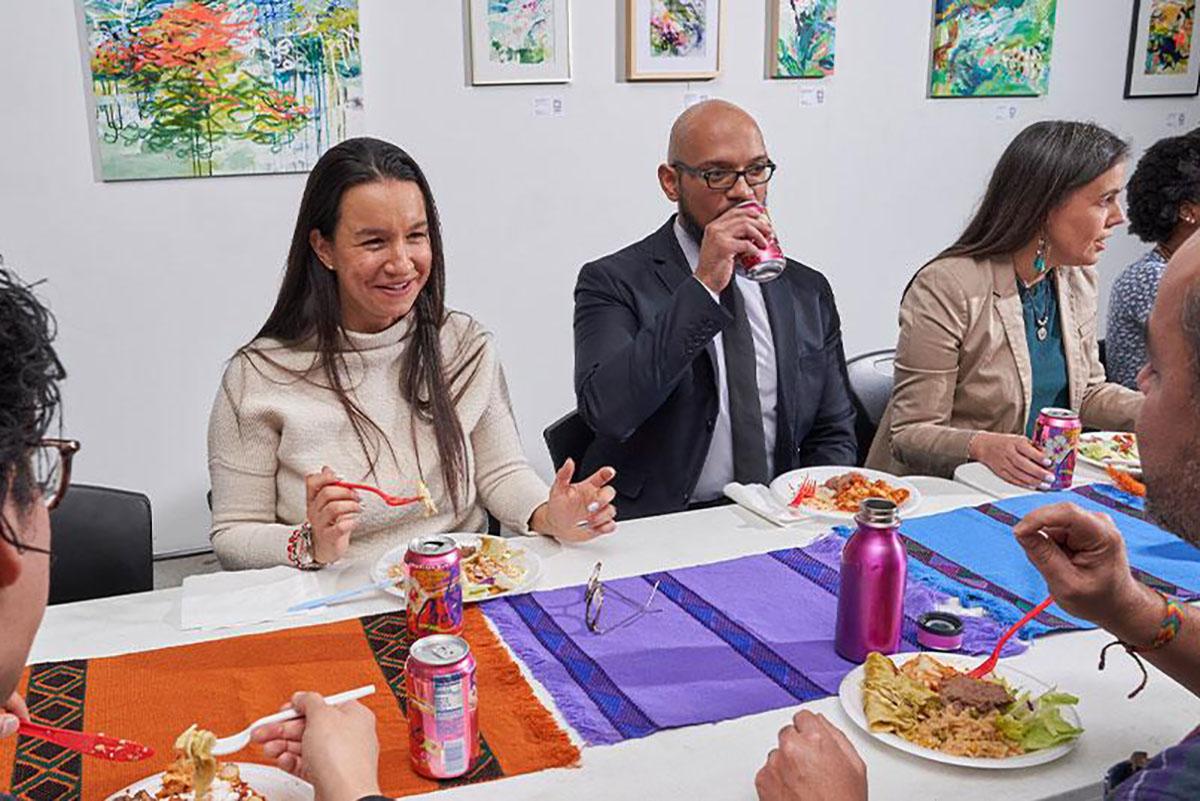Website Launch and Hard Work Puts DU’s CIPR on the Map

In the year since its official launch in 2022, the Center for Immigration Policy and Research (CIPR) at the University of Denver has made great strides in its main goal to foster multidisciplinary collaborations between faculty, students, community partners and policymakers on issues surrounding migration. With a focus on bolstering the hard work completed by these collaborations, CIPR has taken the next step in increasing the accessibility of its presence and resources with the launch of its brand new Center for Immigration Policy and Research website.
Co-directors, Associate Professor at the Josef Korbel School of International Studies Rebecca Galemba and Professor in the Department of Sociology & Criminology Lisa Martinez, have been building toward this moment since 2018 when a call for proposals first went out as a part of former Chancellor Rebecca Chopp’s DU Impact 2025. The call centered the importance of creating knowledge bridges and increasing the amount of interdisciplinary research taking place between departments. It facilitated this with a Shark Tank-style competition that would award up to $300,000 for problem-based research.
Professors Galemba and Martinez heard this call and had the same idea—a migration center on campus that would serve as a hub for immigration research in the Rocky Mountain West. Realizing that they had the same idea, Galemba and Martinez chose to join forces, and CIPR was born.
“What really motivated us was the fact that we knew people from across campus that were doing the research, creative work, teaching or community engagement focused on migration. It’s just that some of us might have known some people here and there, but we wanted something that centralized it and brought it all together,” says Professor Martinez.
CIPR has worked hard to fill that need, connecting over 40 affiliates across the university from almost every school or college on campus with a few exceptions.
“You can really start to see something innovative happen when people are speaking across disciplines,” says Professor Martinez. “The work is richer for it.”
But more than just connecting people across campus, CIPR is dedicated to not just being “the ivory tower," but actively engaging, supporting and uplifting the work being completed on the ground by community-based organizations.
“Many community-based organizations have often seen DU as very unapproachable,” Professor Galemba explains.
CIPR has set out to change that, building bridges with community-based organizations through efforts small and large, like funding event space on campus so organizations can hold assemblies, co-hosting trainings and holding advocacy sessions.
Collaboration is at the core of CIPR’s mission, and its main mechanism for doing this is through grants. CIPR has two separate grants; the Semilla grant (seed-grant), available to sponsor faculty research and work with community-partnerships, and the Student Summer Research and Internship (SSRI) grant available to undergraduate and graduate students.
All current and past awardees from the 2021-22 and 2022-23 cycles can be seen on CIPR’s Faculty and Student pages.
Some of the highlighted projects that CIPR has helped sponsor and showcase are the “Hear, Allá, Presente” podcast, the DU Just Wages project, and the Music Across Borders project.
“Hear, Allá, Presente” documents stories from the immigrant community in Colorado. It sent bilingual and heritage Spanish-speaking DU students into the community as interns to collect oral narratives from Spanish-speaking residents in partnership with History Colorado. The podcast endeavors to uplift the often-silenced voices of immigrants in America and is a recipient of one of CIPR’s Semilla grants.
A collaboration between Assistant Professor of Media, Film and Journalism Studies Carlos Jimenez, DU alumni and community organizations Casa de Paz and Rocky Mountain Immigrant Justice Advocacy Network (RMIAN), the podcast is a fine example of the innovation that can take place around migrant issues when multidisciplinary groups and community organizations are able to come together. It’s exactly the type of work CIPR hopes to cultivate and encourage moving forward.
“The whole idea is to bring the great work that people are already doing, and really create these synergies to make more impactful, transformative and meaningful work both for our students and faculty, but also for the community,” Professor Galemba says.
In addition to serving as a platform for community collaboration, CIPR intends to become more involved with policy commentary moving into the future.
To find out more about the research and projects CIPR supports, apply for grants or see a complete list of affiliates and partners, head to CIPR’s brand new website and see the full extent of the innovation and work being done.
Those looking to support or join CIPR can find more information at Get Involved.







